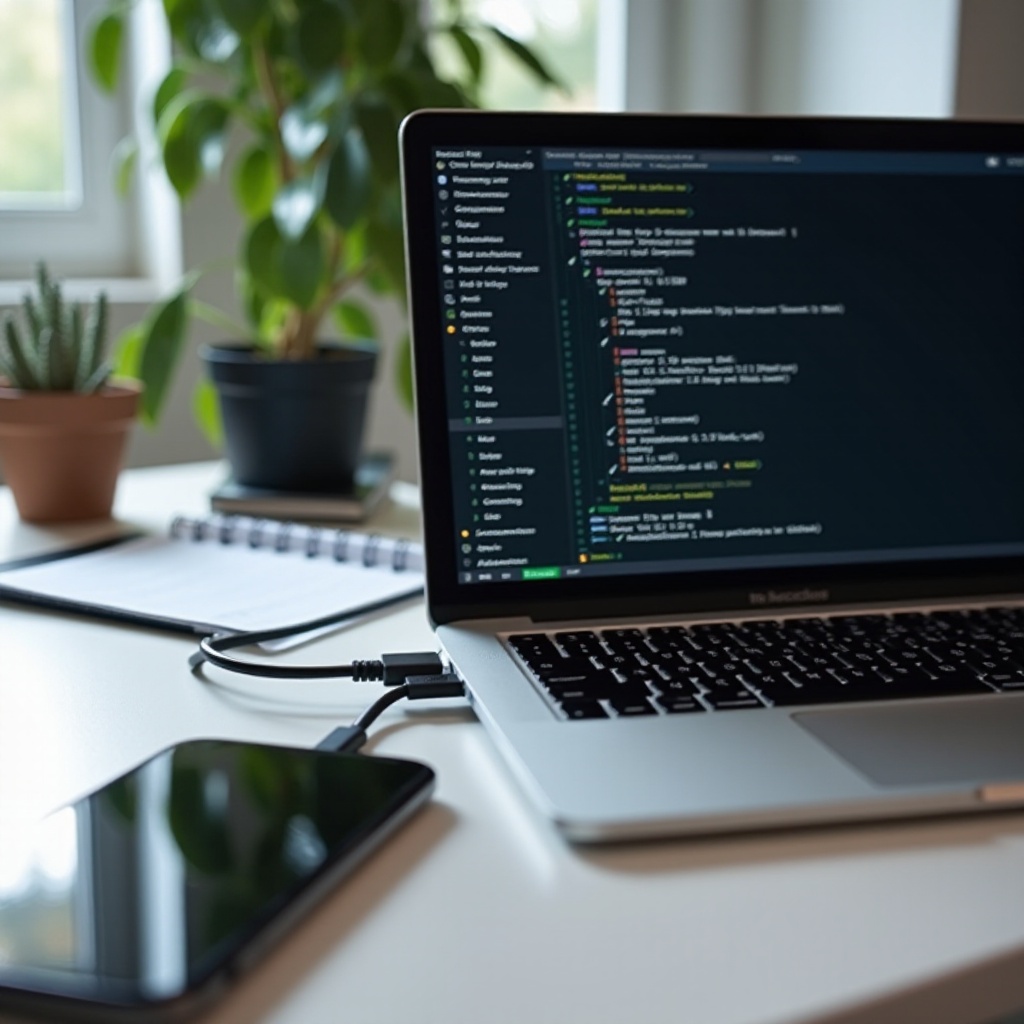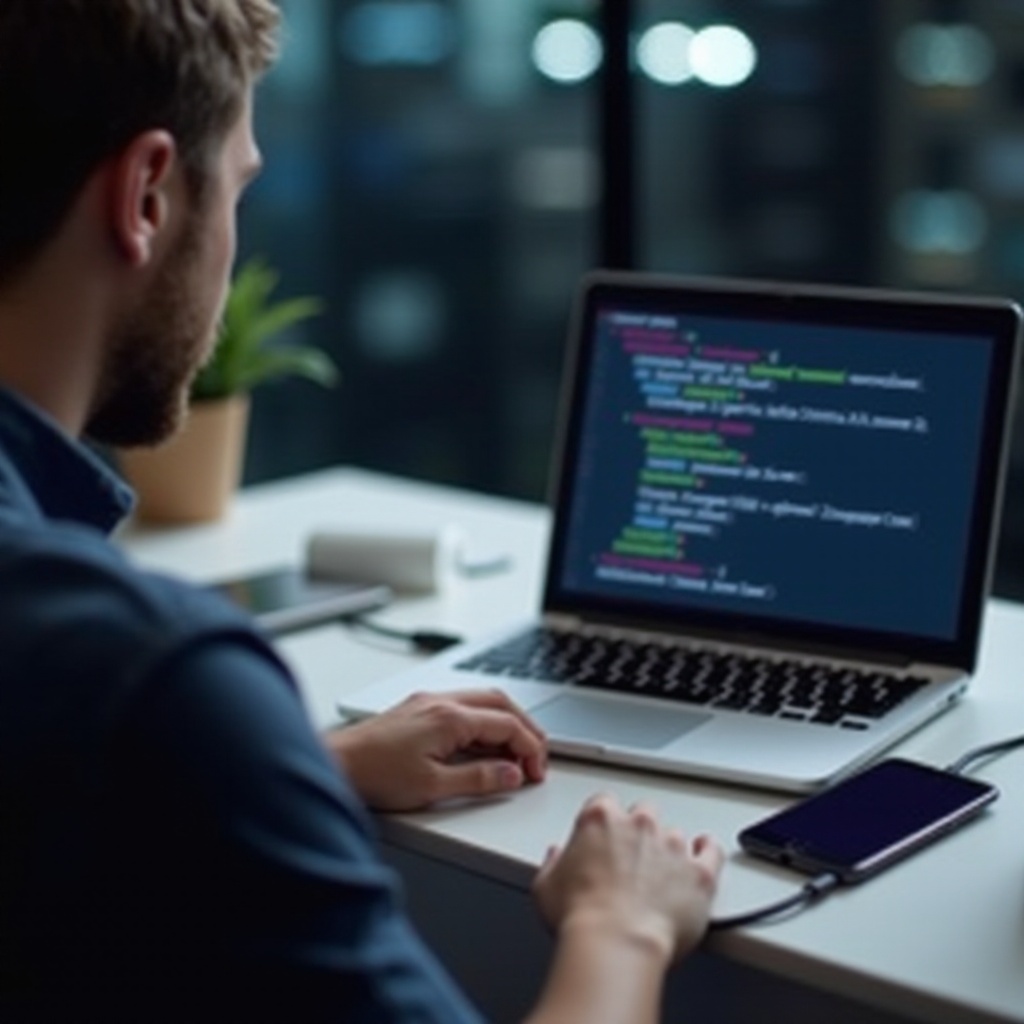How to Fix 'Android Phone Not Showing Up in ADB Devices
Introduction
Are you frustrated because your Android phone isn't showing up in ADB devices? You're not alone. Many Android developers face this issue, impacting their workflow and productivity. The good news is that the solutions are usually straightforward, even if you're not a tech wizard. In this guide, we'll walk you through the steps to resolve this issue, ensuring your Android device connects properly to ADB.

Understanding ADB and Its Importance
The Android Debug Bridge (ADB) is a powerful tool that allows deep communication between your Android device and your computer. It's essential for various tasks such as debugging apps, installing software, or rooting your phone. Without ADB, developers and advanced users would struggle to perform these critical operations. Given its importance, a malfunctioning ADB connection can be a significant roadblock.
Common Causes of ADB Connection Issues
Several factors can prevent your Android phone from showing up in ADB devices. Understanding these can help you diagnose and resolve the issue more effectively:
- USB Connection Issues: The problem could be as simple as a faulty USB cable or port.
- USB Debugging Not Enabled: Your phone must have USB debugging enabled to communicate with ADB.
- Driver Problems: Outdated or missing drivers are common culprits.
- Authorization Issues: Your computer may not have the necessary permissions to access your Android device.
- Software Incompatibility: Older versions of ADB might not recognize newer Android devices.

Initial Checks to Perform
Before diving into more complicated solutions, perform these initial checks:
Enabling USB Debugging
USB Debugging is crucial for establishing an ADB connection. To enable it:
- Go to Settings on your Android device.
- Navigate to About Phone.
- Tap Build Number seven times to unlock developer options.
- Go back to Settings and select Developer Options.
- Enable USB Debugging.
Checking Device Connection and Notification
Ensure your device is properly connected: - Check the Connection: Look for a notification on your Android device that usually says Charging this device via USB. Tap it and set Use USB for to File transfer or MTP. - Replug the USB Cable: Sometimes, a quick re-plugging can solve the issue.
Verifying USB Cable and Port
- Replace the USB Cable: Try a different USB cable to rule out any issues with the cable.
- Change the USB Port: Sometimes, changing to another USB port on your computer can fix the issue.

Detailed Troubleshooting Guide
If the initial checks didn't resolve the problem, follow these steps:
Restarting ADB Server
Restarting the ADB server can often solve connectivity issues:
1. Open a command prompt or terminal on your computer.
2. Type adb kill-server and press Enter.
3. Type adb start-server and press Enter.
Checking ADB Version Compatibility
Using the right ADB version is crucial: - Ensure you’re using the latest version of ADB. You can download it from the official Android Developers site.
Verifying Permissions and Authorizations
Make sure your computer is authorized to access the device: 1. Connect your Android device to your computer. 2. Check your phone for any authorization prompt and approve it.
Driver and Software Solutions
Addressing driver-related issues can resolve the problem:
Installing or Updating ADB Drivers
Ensure you have the latest ADB drivers installed: 1. On Windows, download and install the Google USB Driver from the official site. 2. On macOS and Linux, drivers are typically included with ADB.
Configuring USB Connection Settings
- Navigate to Settings > Developer options > Default USB Configuration on your Android device.
- Set the default to File Transfer (MTP).
Using Universal ADB Drivers and Third-Party Tools
Sometimes, universal ADB drivers can help: - Install Universal ADB Drivers from sites like ClockworkMod for better compatibility. - Consider using tools like 15 Seconds ADB Installer to streamline driver installation.
Advanced Troubleshooting Methods
If the issue still persists, try these advanced methods:
Using ADB Over Wi-Fi
Using ADB over Wi-Fi can bypass USB issues:
1. Connect your phone and computer to the same Wi-Fi network.
2. Enable ADB over Network in Developer Options.
3. On your computer, type adb connect [device IP].
Resetting ADB Configuration
Resetting the ADB configuration can resolve persistent issues: 1. On your computer, navigate to the .android folder. 2. Delete the adbkey and adbkey.pub files. 3. Restart ADB using the steps mentioned earlier.
Checking Device Logs for Errors
Review device logs for more insights:
1. Use adb logcat to access system logs.
2. Look for any error messages related to ADB.
Preventive Measures to Avoid Future Issues
To prevent this issue from recurring: - Regularly update your ADB and device drivers. - Use a reliable USB cable and port. - Periodically check and refresh your device’s authorization status.
Conclusion
Dealing with an Android phone that doesn’t show up in ADB devices can be frustrating, but the solutions are typically straightforward. By following the steps mentioned in this guide, you should be able to resolve the issue and get back to your development tasks without too much hassle. Remember, keeping your tools and drivers updated goes a long way in preventing similar issues in the future.
Frequently Asked Questions
Why is my device not showing up in ADB devices list?
Several reasons could cause this, including USB debugging not being enabled, faulty USB cable/port, outdated ADB drivers, or missing authorizations.
How do I update my ADB drivers?
You can update ADB drivers by downloading the latest from the official Android Developers site or using third-party tools like 15 Seconds ADB Installer.
Can I use ADB without a USB connection?
Yes, you can use ADB over Wi-Fi by connecting your phone and computer to the same Wi-Fi network and enabling ADB over Network in Developer Options.



